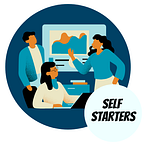Why Data Science?
It cannot be denied the data has been increasingly shaping the world we live in — from helping us pick the next TV series we may like to influence the course of elections. To quote The Economist — “Data are to this century what oil was to the last one: a driver of growth and change”. So, it is important to understand the field that is driving this change — Data Science. Data science or data-driven science combines statistics, algorithms, and technology to solve complex problems, especially in businesses. Consider these examples
- Amazon’s product recommendation engine is built on data science and they not only predict what you might like but can predict the probability of you buying a certain product. If the probability is high enough, they move it to the distribution centers closer to you so that when you buy it can be delivered to you on the same day.
- On 29 July 2018, Windows 10 was released, and users of Windows 8.1 were allowed to get a free upgrade. But why? Why would Microsoft give away its flagship product for free? Windows 10 rolled out the Advertiser ID protocol by which data from every user can be anonymized and collected. By default, the setting allows all data — web pages visited, software used, frequency of crashes, response times, etc. to be collected to understand what users need and what features of the OS they can scale back. With this Microsoft hopes to build a one-stop software to meet the need of any user.
But is Data Science limited to traditional business decision-making? Consider these example
- Havas Helia worked with IBM on an interesting project. They analyzed New Year messages on social media and matched them with emotional states. The agency then used Watson Personality Insights to match 2,800 beer recipes to human characteristics based on language and ingredients. The top ten beers that matched the most shared New Year emotions were chosen and their ingredients were combined to make the “New Year Beer 0101 — brewed by data”
- In Los Angeles “predictive policing” (“PredPol”) has been deployed for over two decades. Using years — and sometimes decades — worth of crime reports, data science algorithms analyze the data to identify areas with high probabilities for certain types of crime, placing little red boxes on maps of the city that are streamed into patrol cars. “Burglars tend to be territorial, so once they find a neighborhood where they get the good stuff, they come back again and again,” — Captain John Romero
And it isn’t just businesses, any domain can benefit from making informed decisions, from “data-driven decisions”. UN Global Pulse is a group of professionals harnessing big data for humanitarian action such as understanding the perception of migrants and refugees using Social Media, tracking the impact of climate anomalies, mining tweets to understand food price crises, etc.
Data Science has made a substantial impact in multiple fields and is here to stay. And it isn’t just the companies or data professionals that can leverage data to make an impact. Anyone can benefit from data-driven decisions. So, for the curious soul and for the serious data scientist, follow and stay tuned I cover more about how to make data-driven decisions.
If you like to see more of such content do leave a few claps (no upper limit 😁).
If you are looking for free one-on-one mentorship please follow me on Medium and LinkedIn and drop a message on LinkedIn.
